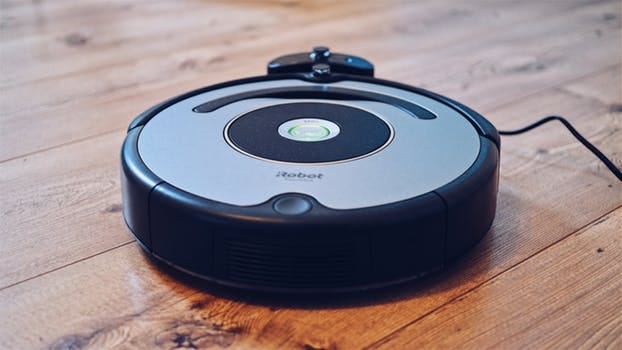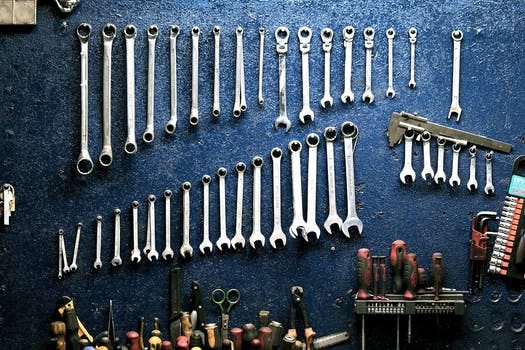There’s never any extra time. As parents of young children, it seems like we’re always on a quest for more time. We’re booked full from 6:00 AM when the kids wake up until 7:45 PM when they’re finally in bed and asleep. Thus, I have approximately 10.25 hours to sleep, get ready for bed, and complete my daily household servitude. Of course not in that order.
My wife runs on the same schedule, although due to a great arrangement with her employer, in the afternoon she works from home. She has an advantage over me there — and feels slightly less guilty than I do about collapsing on the couch after sneaking away from our sleeping daughter.
Occasionally I win an extra hour or two, which I normally attempt to fill with something useful or fulfilling: recording a new song, administrative work for our rentals, writing on medium, etc. Sometimes these ambitions don’t come to fruition and the gravitational pull of the couch is just too strong.
Since shortly after the arrival of our first child, it’s often overwhelming keeping up on the chores required to keep our house in order AND trying to find a morsel of time to invest into projects that excite me.
Like many fathers (and mothers), I still have this innate drive to build and create something beyond the spreadsheets that fill my workdays. That thirst didn’t vanish with the arrival of the children, and this creation can’t happen if all of our free time gets tied up in low-value activities. In the spirit of continuous improvement, we have found benefit in attempting to run our house like we would run a business.
Cut out all activity that doesn’t add value. Outsource where possible.
If you enjoy grocery shopping and vacuuming – that’s fine. In the right quantity, I find them both to be pleasurable. Although they certainly aren’t at the top of my list.
Here’s a few strategies that my family uses in order to minimize non-value-add activities and improve our household efficiency in our non-stop quest for time. Some of these tips do fall into multiple categories, I’ve arbitrarily placed them. Apply these tips to anything and everything you can to free up valuable time for doing things that interest you.
1. Automate and subscribe. Anything that we can set and forget, is set and forgotten. When my son started eating semi-solids, we started with a babyfood subscription through Amazon Pantry. You could expand it to all kinds of household items: diapers or soap or cleaning supplies. There are other useful subscription services out there as well.
Most of our regular bills are also paid through automatic withdrawals each month, so we don’t have to worry about scheduling payments.
2. Outsource housework. We have a Roomba. And a Braava. (Both from iRobot). Our Roomba is more schedulable than the Braava, but I consider both of them a type of outsourcing in that we’ve purchased a machine to perform work that we would otherwise need to perform manually. I’d also hire a cleaning lady if there was a reputable service around here (or I was comfortable having a stranger in the house when I’m not there).
The Roomba is set to run on our main floor three mornings per week and we use it upstairs on the weekend. This might also be a possibility with more expensive versions of the Braava (a mopping robot), but our unit needs to be turned on manually.

3. Outsource meals. We’ve also outsourced most of our meal planning. Six months ago, we started ordering our meals from HelloFresh. It’s not entirely hands-off, but they have great menus and it saves mom and dad a ton of time on meal planning and shopping. We’ve also hacked it a bit so that it’s not much more expensive than our once-a-week trip to the market, and if you factor in the time saved on meal planning and physically going to the store we come out on top. Every Saturday morning a box full of goodness shows up in our carport. Easy.
4. O.H.I.O. (only handle it once). An insurance company I worked at long before I became a father had an O.H.I.O. sign up in it’s claims department. For some reason it stuck with me after all these years. It’s not an epic hack and I wouldn’t measure the time saved in hours per week. But the savings is also not zero.
We try to reduce the amount of times we touch things: dirty dishes go directly in the dishwasher (do not stop on the counter or the sink); sort the laundry upstairs right away we get undressed; recycle the junk mail as soon as it comes out of the mailbox. As a bonus, I don’t get any grief for leaving dirty dishes laying around in the sink.

5. Showers not baths. At the beginning, babies normally don’t seem to get too dirty. But, after our children started eating baby mush, daily cleaning became necessary. However, instead of a daily bath we added a shower to the evening routine. Once a week the kids still get a bath because they enjoy it. But we save a lot of time (and a lot of water) by simply hosing them down, lathering them up, and rinsing off in the shower.
6. Combine and integrate. This was more of a tip for commuting parents, and somewhat outside of the household. But when trying to optimize, it’s important to look at the whole picture. During the dry seasons, I try to bike to work two or three times per week. When I was taking public transportation the difference between biking and riding was negligible. Although riding takes longer, now that I’ve got a car, it allows me to get my sport in for the day. As father to two young children, with a wife who also works full-time, that’s something I otherwise would never find time for. At my former employer we had a group of seven or eight people who regularly used our lunch breaks to go running. Again, something I would otherwise never be able to make the time for.
7. Use the right tools. This tip could also be considered slightly tangential, but I think about all the time I’ve wasted by not having the correct tool for the job. My time is valuable, so enjoying our projects is important. That means that whenever we prepare to start work on something new, we make sure that we have the right tools.
Quality is also important. A weak cordless drill, with a battery that doesn’t hold a charge is just a hassle.
Some examples:
– Redoing the tile in my in-laws’ entryway: time for a tile saw.
– Building an outdoor kitchen for our grill: get a second cordless drill to avoid constantly switching bits.
– Spring cleaning the windows — get a Kaercher window cleaner.
The time and effort saved make the tools a worthy investment, even for they only get used once or twice a year. And these days, decent power tools are relatively affordable. I’ve kicked myself so many times for trying to “make do” in order to save a few dollars (or euros). The one downside is that the tools can take up a lot of space, and sometimes I feel like the in-laws take advantage of my arsenal. But I’ve never regretted having the right tools for a job.

In conclusion
As busy, ambitious parents, time is too precious to waste on routine activities. Figure out where you’re spending a lot of time on “chores” and put these strategies to work for you and increase your household efficiency and win back a little bit of your life.
Leave a comment and let me know where you’ve made progress in your quest for time.